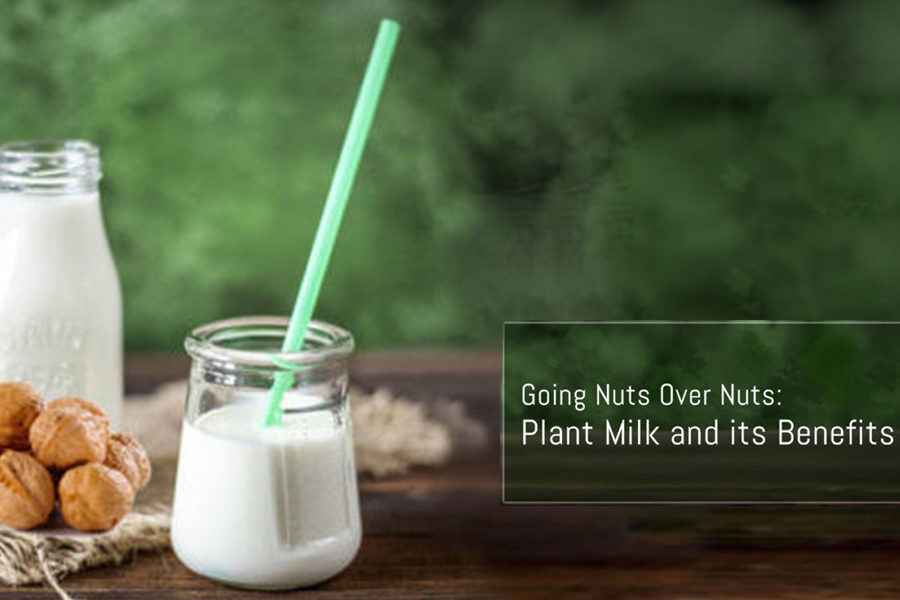
Going Nuts Over Nuts- Plant Milk and its Benefits
Nuts have always been popular and widely eaten since they are rightly considered a part of a healthy diet for humans. The fibre, the unsaturated fat, the vitamins, the minerals and the phytonutrients present in nuts are recognized as essential for the growth and development of our body and mind.
However, this sudden boom in the plant milk industry has made people really go nuts over nuts! Of course, there are others like soy milk and coconut milk that have always been around and new entrants like oat milk and hemp milk, but milk extracted from nuts like almonds, cashews, and walnuts find favour with most people.
The popularity of plant milks can be attributed to the declining interest in animal milks. People across the globe are beginning to realize that we have, for too long, been fed the lie that drinking an animal’s milk, especially of a cow, is natural and healthy for us. But the truth is that neither is drinking milk post-infancy natural nor is drinking milk interspecies healthy. After all, milk is just a white liquid that is produced by a new mother and is meant as food and a source of nutrition only for her own babies. So how can another mother’s milk become our ‘food’ or be a good source of nutrition for us? Besides, more and more people are also questioning the ethics of dairy farming and what animal agriculture entails for the environment, making the shift to plant milk a global phenomenon.
Since we are addicted to adding ‘milk’ to our tea and coffee or gulping down glasses of ‘milk’ and pushing it down our children’s throats, we do need a white liquid as a replacement. And any extract from a plant-based product that is white in colour is fitting the bill very well! Then we need a ‘milk’ for making curds and savoury and sweet dishes. Here again, plant milks work as good substitutes because they are as versatile in use as dairy milk. And lastly, the dairy products that we enjoy like cheese, butter, paneer, and ghee are now being replaced by almond cheese, peanut butter, tofu and coconut oil.
Coming to the nutritional value where dairy milk has been promoted as the best source of calcium, the fact remains that milk is only an indirect source of calcium and the cow herself gets calcium from the plants she eats. Besides, calcium is not the only mineral that our body needs for strong bones and teeth. It is proven beyond doubt that a balanced diet of plant products (nuts, seeds, fruits, vegetables, legumes, and grains) and their extracts (oils, juices and milk) provide all the calcium and other nutrients necessary for a human body. An additional and important piece of information which often gets overlooked is that plant-based foods are not only nutrient-dense but absolutely cholesterol-free, unlike all animal-based items including animal milk.
As descendants of the apes, humans are meant to be frugivores who eat fruits, nuts and seeds. And many people who are now going on a raw vegan diet, are doing exactly that. So whether it is for ethical, environmental or health reasons, plant milks are here to stay. Plant milks are natural and tasty. They are easy to make at home and increasingly easy to buy from the market. And you can get all information regarding plant milk online.
So go nuts over nut milk today and also share wellness and happiness among family and friends!
Malvika Kalra
(The author is the founder of REHAI-freedom for animals, an initiative to promote Veganism. She is also a TEDx speaker who has spoken on Animal Liberation and the end of Speciesism)
Originally published on the Ambrosia Nuts website.